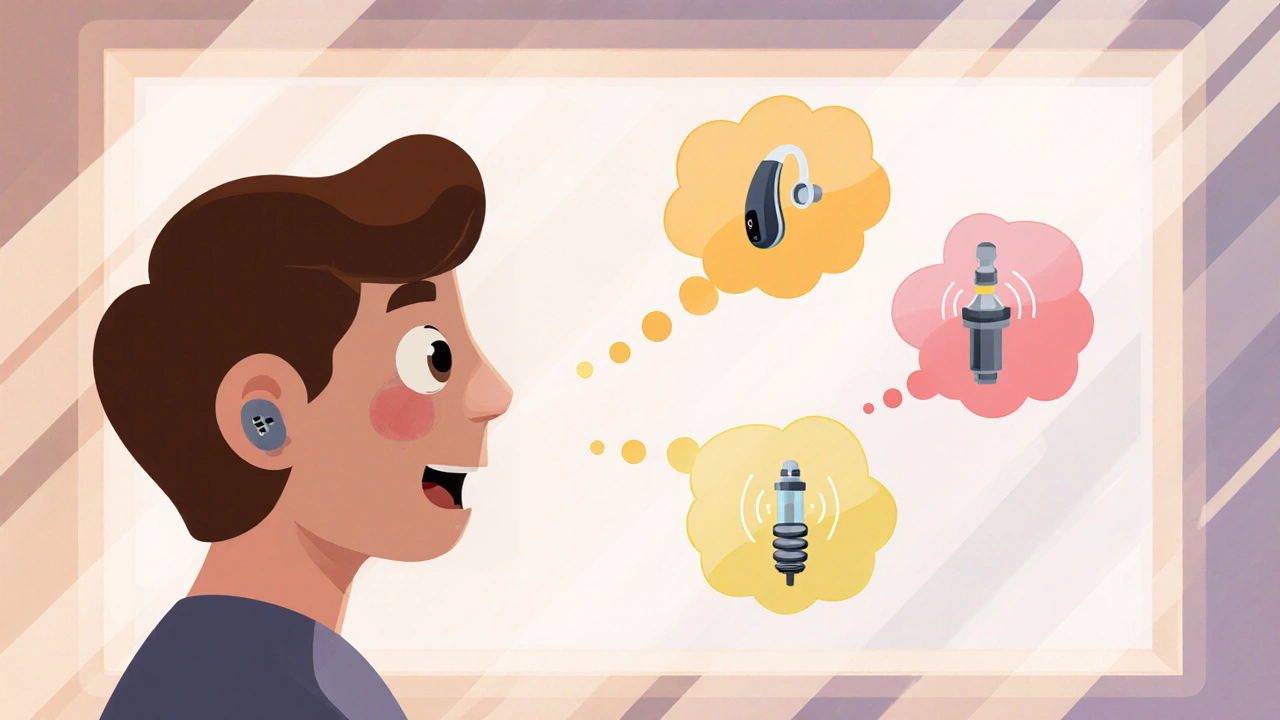Hearing Difficulty: Causes, Symptoms & Management
When dealing with hearing difficulty, a reduced ability to hear sounds that can affect everyday communication and safety. Also known as hearing loss, it often points to underlying health issues, medication side‑effects, or age‑related changes.
Many prescription meds are ototoxic drugs, substances that can damage the inner ear and trigger hearing difficulty. Antibiotics such as azithromycin, certain diuretics, and some chemotherapy agents fall into this group. If you start a new drug and notice muffled sounds or ringing, a quick check with your pharmacist or doctor can save your hearing.
An inner ear infection, inflammation of the labyrinth that controls balance and hearing can cause a sudden drop in hearing, often accompanied by dizziness or vertigo. Prompt treatment with the right antibiotics or steroids, similar to the eye‑infection guides you’ll find below, can prevent permanent loss.
Sensorineural hearing loss, damage to the cochlear hair cells or auditory nerve resulting in permanent hearing difficulty is the most common chronic form in adults. Age, noise exposure, genetics, and even vitamin B12 deficiency—topics covered in our vitamin‑deficiency article—play big roles. Once it sets in, amplification devices or cochlear implants become the primary solutions.
Diagnosing the root cause starts with an audiometric test, a quick, painless exam that measures your hearing thresholds across frequencies. The test helps separate conductive problems (like fluid buildup) from sensorineural issues, guiding the right treatment path. In many cases, lifestyle tweaks—reducing loud headphone use, wearing ear protection at concerts, and managing blood pressure—can slow further decline.
When medication is the culprit, switching to a non‑ototoxic alternative or adjusting the dose often restores function, as seen in our detailed drug‑comparison posts (e.g., azithromycin vs. doxycycline). For chronic cases, hearing aids, assistive listening devices, and smartphone apps can dramatically improve communication. Training programs, such as auditory rehabilitation, also help the brain adapt to reduced input.
Understanding hearing difficulty empowers you to act early, whether that means asking your clinician about a medication’s side‑effects, seeking prompt care for an ear infection, or exploring assistive technology. Below you’ll find a curated set of articles that dive deeper into specific causes, medication guides, and practical tips to manage and mitigate hearing difficulty effectively.

Future Hearing Technology: Emerging Solutions for Hearing Difficulty
Explore the latest breakthroughs shaping the future of hearing technology, from AI-powered aids to neural implants, and learn how they will transform life for those with hearing difficulty.
